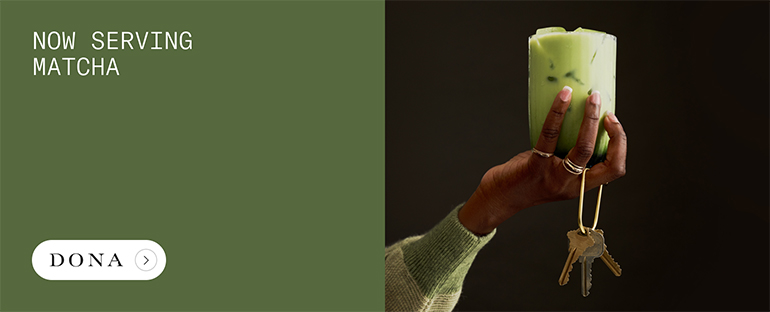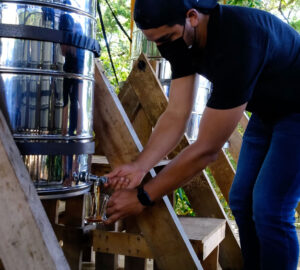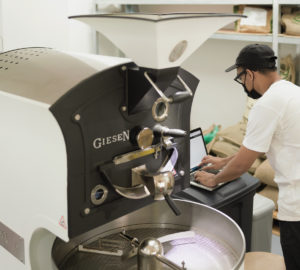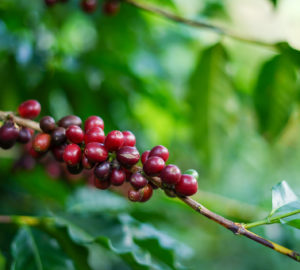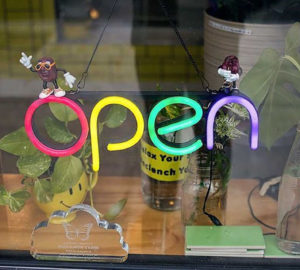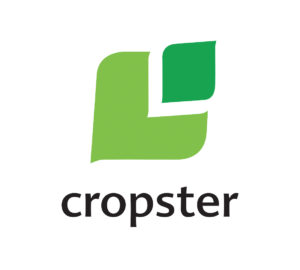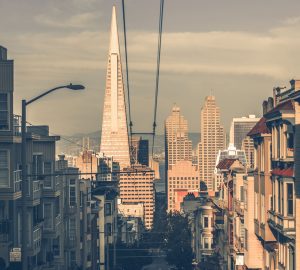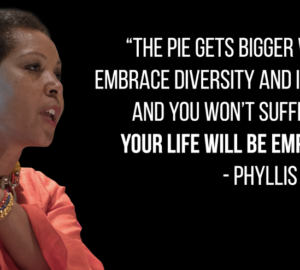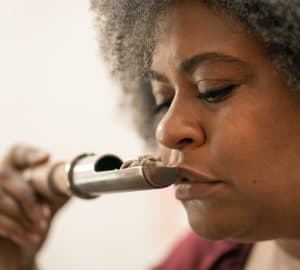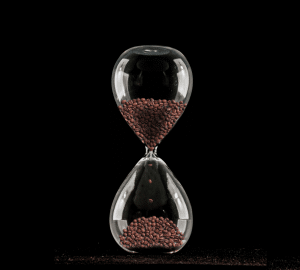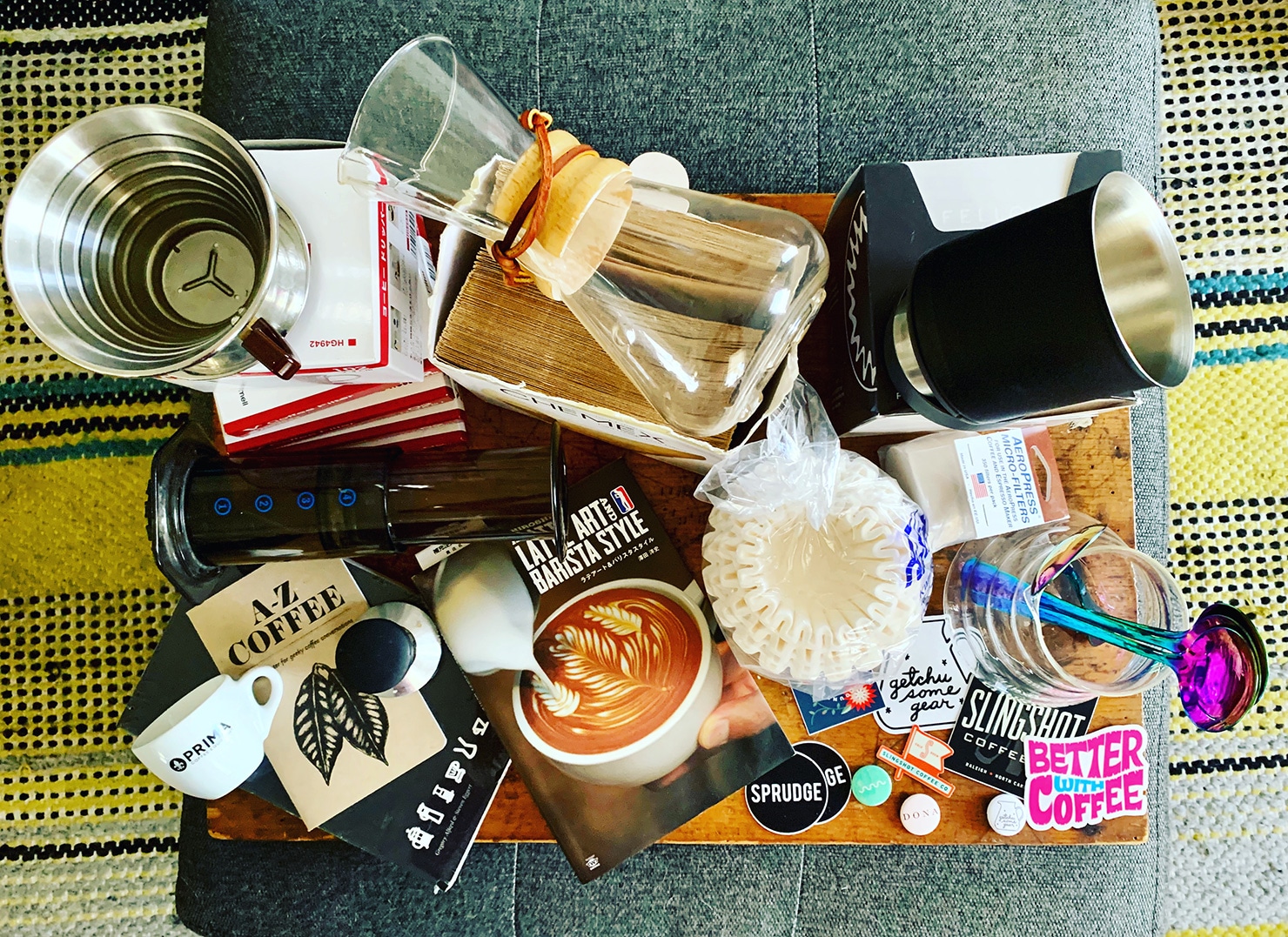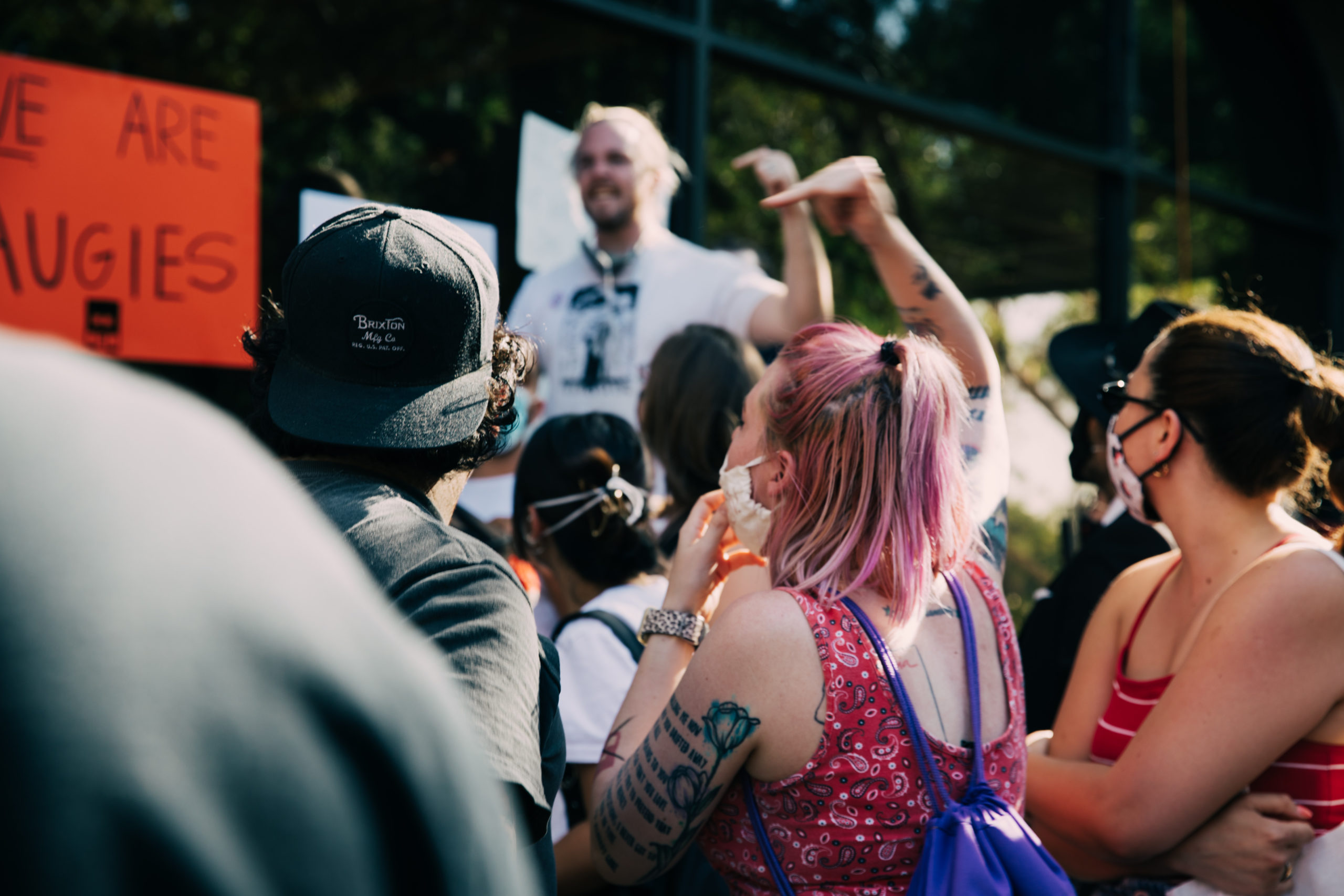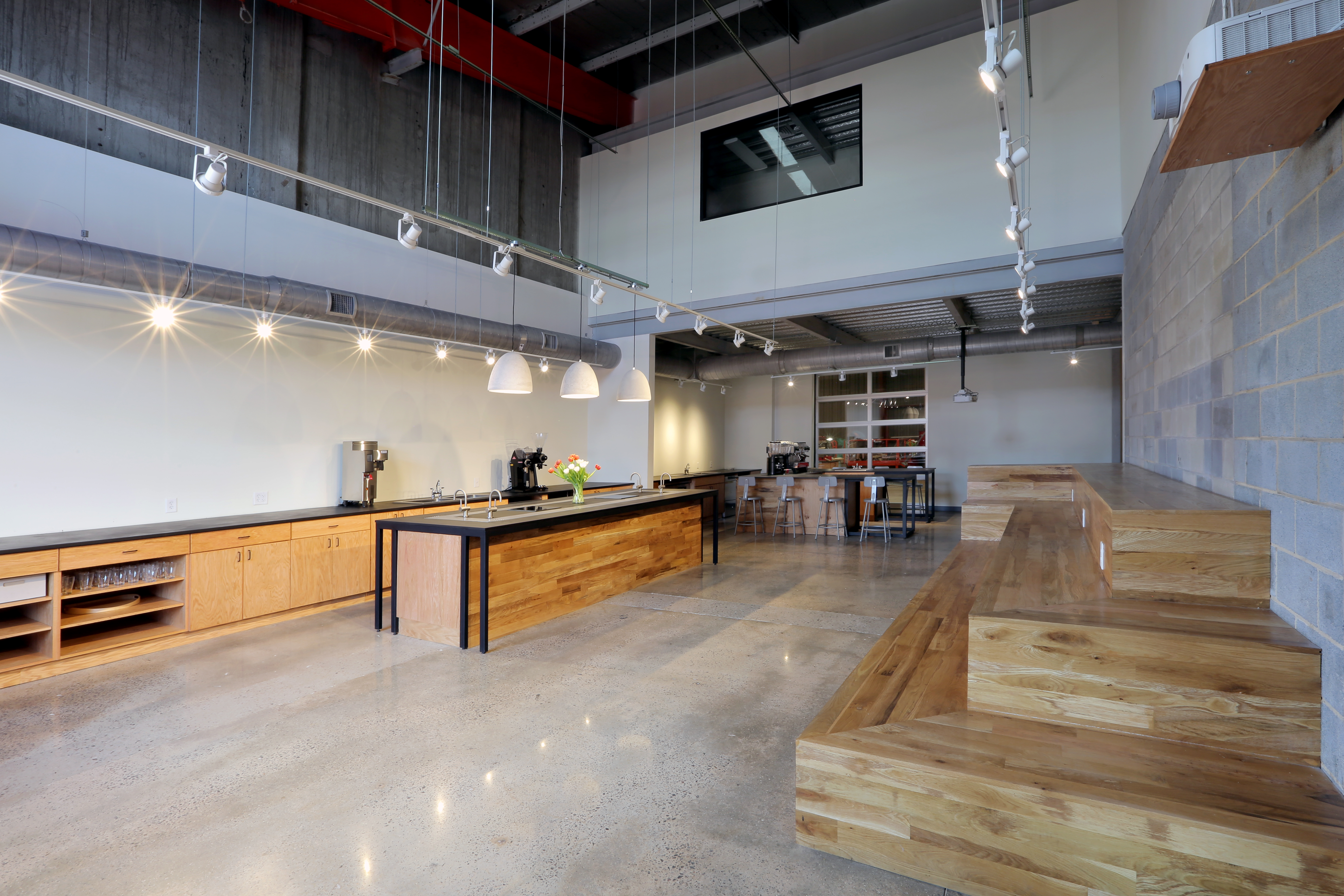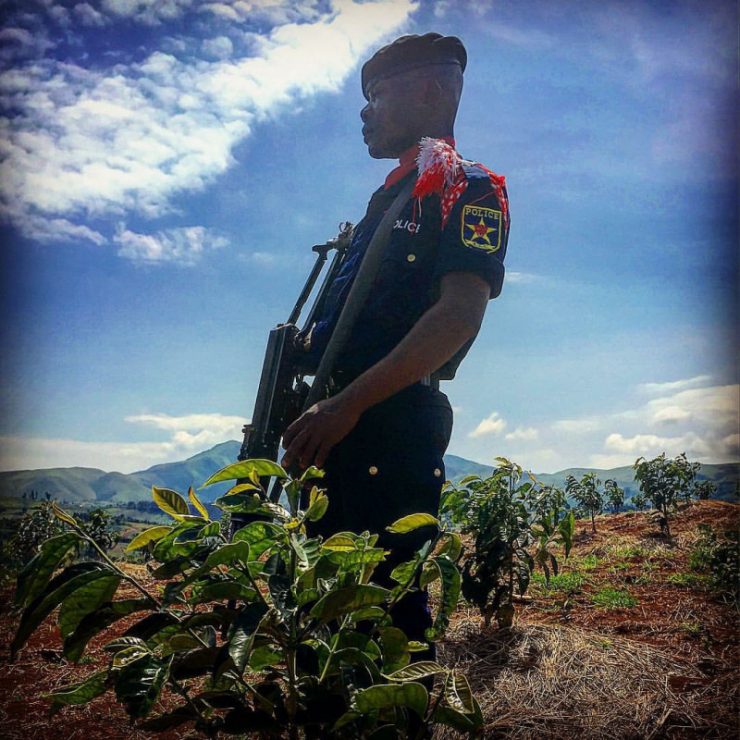
There is a beautiful story being told about Congolese coffees. The millions of dollars in development funding, the celebrity support, and the success of fantastic coffee being sold at a premium price and roasted by top brands: all of it presents an image of a thriving coffee sector in the Democratic Republic of Congo (DRC).
This is the easy story—but as it so often happens, the real story behind the scenes is much more complicated, evolving, and at times dire. While it is true that coffee has unparalleled potential for creating impact in the country, it’s also true that the vast majority of DRC’s coffee farmers still struggle to survive. This is a complicated place plagued by extreme poverty, corruption, and violence, yet possessing an incredible level of resilience and undeveloped potential.
Straddled between these two conflicting narratives—deep strife and growing success—the 2nd Annual Saveur du Kivu was held on May 19-21 in Bukavu, DRC, on the shores of beautiful Lake Kivu. Part cupping competition, part buying trip, part conference, the three-day “experiential exercise” was driven by a small group of committed buyers, roasters, producers, and other organizations who came together to collaborate in support of learning and empowerment in the revitalization of the DRC specialty coffee industry.
Chris Treter, founder of the event and owner of Higher Grounds Trading Co., is a man who sincerely cares for coffee in the Congo. His passion for the people and the coffee of the country inspired him last year, during the first event, to lead a team of women who ran seven marathons in seven days across the dangerous and less than hospitable terrain, all for the sake of raising awareness for the event and promoting gender equality in DRC.
“When I arrived two weeks before Saveur du Kivu last year it was still unclear if the events would even take place,” says Treter. “The cupping lab at the ONC [the DRC government’s National Coffee Office] had not yet been completed, the director of the ONC did not see the value in bringing buyers from around the world to taste coffees from throughout the country on the same table for the first time. We had to convince him to hold the cupping competition in the lab, and the morning after he agreed he was found dead under mysterious circumstances in his home.”
The reality for coffee in DRC
Stories like this are not uncommon in the DRC, a country emerging from decades of violence and conflict that nearly destroyed the coffee sector. Although the level of conflict in DRC has improved drastically in recent years, violence persists. Unlike the country’s coffees, violence here receives little international attention.
In Beni, a coffee growing area along the Eastern border with Uganda, more than 600 people have been killed in daily violence since late 2014. One cooperative leader from Beni shared his experience of being attacked in his own home with his family, held for several hours, and the trauma it continues to cause them. Somehow, he and his fellow producers have established a thriving cooperative amidst the ongoing violence.
The combination of violence and poor government policies drove down official DRC coffee exports from a high of more than 130,000 metric tons in the mid-80s to around 8,000 in 2012/2013. While Congolese coffee production remained fairly constant, almost all coffee was smuggled across the border to Uganda and Rwanda due to the lack of a viable market in DRC. In fact, thousands of farmers are estimated to have died making the unsafe journey across Lake Kivu to sell their coffee in Rwanda, often for a fraction of its worth.
While reforms in the tax law and the re-emergence of international exporters have improved market access for DRC’s farmers, they still face other challenges. Endemic levels of corruption persist, and coffee producers are subject to fake taxation, bribery, and other barriers to doing business in the country. Also, after years of neglect, coffee fields and equipment are old and the population has little experience in proper coffee growing techniques.
Building the future of DRC’s coffee
Despite these socio-political complexities, the coffee in DRC is attracting international attention.
“Rich organic volcanic soil, ideal elevation and climate, and an increasing sophistication to best process quality coffees are proving eastern Congo to be capable of producing some of the finest coffees on the planet,” Treter tells me. “It’s a relatively unknown origin that is quickly being discovered by the most innovative cutting edge specialty buyers around the world.”
Treter’s not alone. Coffees from the DRC are roasted and served around the world at leading coffee brands like Counter Culture Coffee, Square Mile Coffee, Blue Bottle Coffee, and Starbucks, to name just a few. But simply buying coffee might not be enough here. “There is great coffee and a great story, but how do you figure out how to get it out so it benefits the most people?” asks Anne Costello of Peace Coffee in Minneapolis, Minnesota.
For Costello and many others who made the trip to Saveur du Kivu, knowledge and capacity building is key to building the sector. Costello and others participated in what was perhaps the most important element of the Saveur du Kivu event: the cupping training and competition. For two days, she and her colleagues conducted training in quality for representatives from government and producers organizations, as well as cupped the 22 coffee samples alongside the trainees, seeking to identify and build talent in the Congolese coffee industry. Costello says of the training, “It was the next generation that can understand the quality of the coffee their country can produce.”
Linda Mugaroka is one of the next generation Costello describes. One of the younger women who took part in the training, she demonstrated such cupping talent that she ended up on the tasting jury, despite having only previously cupped coffee twice. She is optimistic about her future as a woman in the DRC coffee sector and tells me, “With the training we have here, in 20 years, the Congo will be a country rich in coffee.”
The development community’s investment
It was with that kind of optimism and hope for the future that most coffee producers arrived at the Saveur du Kivu in search of market access, capacity building and most importantly, a chance to have their coffee compete in the cupping competition.
While the Saveur du Kivu offered producers all of these things, there was also a strange disconnect between the average producer group and the large donor/NGO-funded projects who dominated the event. The high profile projects spent so much time highlighting the quality of their coffee, their world class washing stations, and the public private partnerships developed by their high-profile programs, that there was little time to address the real economic and agricultural concerns felt by the vast majority of producers.
“As one of the last frontiers of specialty coffee on earth, we see a race for access to funding in the NGO sector,” explains Treter. “That too often results in the industry being developed with self-serving strategies by NGOs working to meet funder requirements as their sole objective, rather than also being guided by cohesive overarching strategies to construct an industry that meets the demands of the ideal buying partner for highest return for growers.”
Interestingly, the highest scoring coffees in the cupping competition were all produced by groups supported by an international NGO or large-scale development program. These coffees show the potential this region has for producing beautiful cups, but also raise important questions about the number of resources and support needed in order to produce this quality of specialty coffee in the DRC, as well as the sustainability of these producer groups when the large-scale development funding ends.
But is it sustainable?
One-off trainings, NGO-funded cooperatives, and high-price purchases of a few containers of coffee will not be enough to ensure the sustainability of the DRC coffee sector.
Luckily, there is incredible progress being made by others in the sector that is less visible, but no less impressive. Exporters who had been forced to leave the country in the past few decades are returning and investing heavily in the country, and new talent is seeing coffee as an industry with a bright future.
The country has all of the natural resources needed to produce an amazing coffee, but lacks the long-term market-based commitment that will elevate Congolese coffee from a project to an industry. As one Congolese exporter said, “We need buyers more interested in investing in the future of the country than in paying a premium for a few incredible coffees that will do little to lift DRC’s farmers out of poverty.”
So perhaps what the sector needs now is consistent commitment. Chris Treter’s vision for the next Saveur du Kivu is an event that is more focused on adding value for DRC’s farmers and the private sector. Next year, the Saveur du Kivu team plans to further develop the infrastructure to provide training and the collection of samples from a complete network of all organizations and washing stations that meet the SCAA cupping standards. This will also include creating a database and map of farming organizations, as well as a best practices and buyer info database. The 2017 event will also feature a conference and cupping event, but additionally will add a closing concert by Congolese musicians.
To be sure, the upcoming year will be a critical one for DRC. Elections are scheduled to be held in December, and violent election-related protests have already started. At the same time, USAID is expected to fund a coffee value chain program worth 25 to 50 million USD. With so much potential, yet so much fragility, one must wonder what kind of Congo the organizers of Saveur du Kivu will find when they return for next year’s event.
Sara Mason is founder of SHIFT Social Impact Solutions, and a freelance writer based in Barcelona. Read more Sara Mason on Sprudge.
All photos courtesy Saveur du Kivu.














